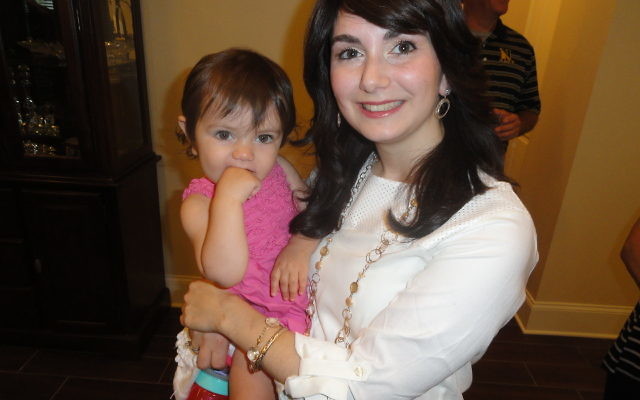Chabad Midtown: This Year, Don’t Pray
By Shifra Sharfstein | Chabad Midtown
I have a confession to make: This Rosh Hashanah, I’m not going to pray.
I won’t be alone. My inspiration goes way back. You see, it happened about 2,000 years ago.
Rabbi Akiva, whose journey in Torah study began after the age of 40, was one of the greatest sages in Jewish history and a leader of our people at the time.
Once during a great drought, the Talmudic sages decreed a fast and public prayers, but to no avail — the rain did not fall. Then Rabbi Akiva came to lead the prayers, and he opened by saying, “Avinu Malkeinu, our Father, our King, we have no king but You.”
At once, his prayers were accepted, and rain fell. When the people saw that he was answered with this prayer, they added it to their own prayers, and today those powerful words are part of our own.
Rabbi Aviva did not pray. He connected to his Creator as a father and as a king with all of his heart.
Three hundred years ago in the synagogue of the holy Rabbi Yisrael Baal Shem Tov, great men gathered for the services of the holiest day of the year. They were swaying and singing, reciting ancient prayers. And then a sound was heard from the crowd: “Koo-kariku!”
The congregants turned to find a young farm boy wholeheartedly singing the song of a rooster, “koo-kariku!”
All those nearby tried quieting the boy until the Baal Shem Tov turned from his intense prayer and motioned to them: “Leave him.”
Later the curious congregants approached their rabbi and asked why he had asked them to leave the boy to his noisemaking.
The Baal Shem Tov responded, “What his sincere call of koo-kariku was able to accomplish on high was far greater than that of any of your prayers.”
You see, that farm boy did not pray. He connected to his Creator in the only language he knew, and yet it was with all of his heart.
Our son Zelig was just 2 years old when a heavy rainstorm fell in Atlanta. Our kitchen door then was part window, and little Zelig rushed to peer out. Quite amazed at the sheer amount of rainfall, he said loudly: “HaShem, turn it off! It’s too much!”
Amused, I sent the story to my family WhatsApp. My father found the beauty in his words.
Zelig did not pray. He simply connected with his Creator as a young child with all of his heart.
Jews don’t pray. We do something called tefillah, which means to connect. We open our hearts and speak to our Father, our King. To our Creator, with whom we have a deep relationship.
And the words written in the siddur, our prayer book, what role do they play? Requests for health, wealth, clarity, peace. Poetic meditation speaking of angels and the beauty found within nature.
I’ve spent years learning the history and depth of those words, and I continue to find inspiration and deeper insight every year. But one thing we must know: These divinely inspired words were designed to reawaken our desire to personally connect with our Creator.
They call Yom Kippur a Day of Atonement.
That couldn’t be more true.
It is a day of At-One-Ment.
It’s about connecting, about the relationship.
In every relationship we need to spend time reconnecting. With my children I try to give each one a few minutes daily of mommy time. Time that is spent completely focused on them and whatever they would like to do or tell me.
My parents taught me to go out with my husband every week, just the two of us, to simply talk to each other. OK, sometimes that trip will be to Costco, but, hey, we make it work.
In every relationship we have, with friends, family and our relationship with our Creator, we need to take the time to reconnect.
So this Rosh Hashanah, I’m not going to pray. I’m going to focus on my relationship with G-d.
We’re going to spend the day talking, and I hope I do it with all my heart.
Shifra Sharfstein is the co-director of Chabad at Georgia Tech and Georgia State.





comments